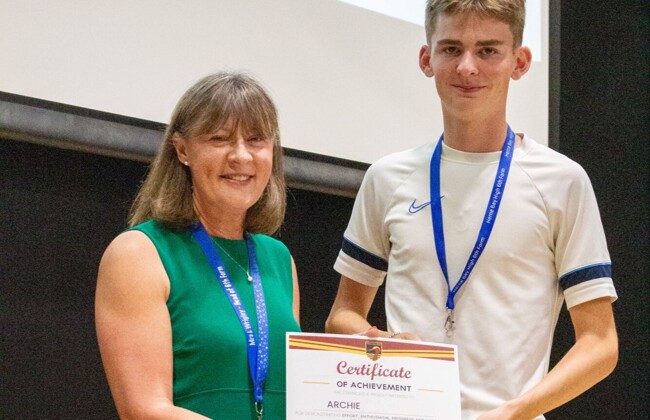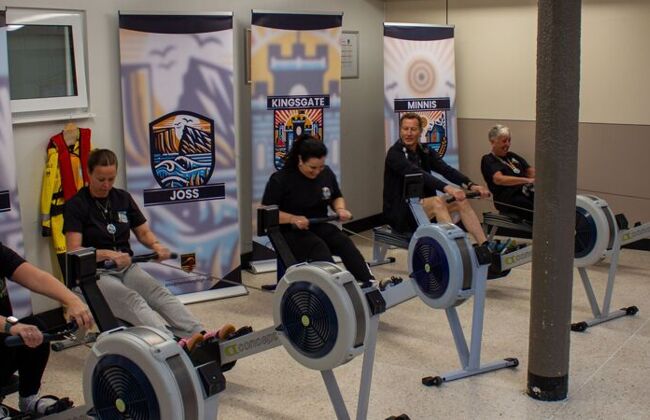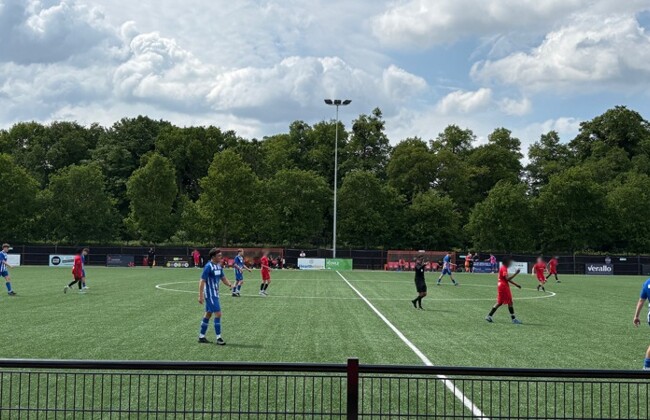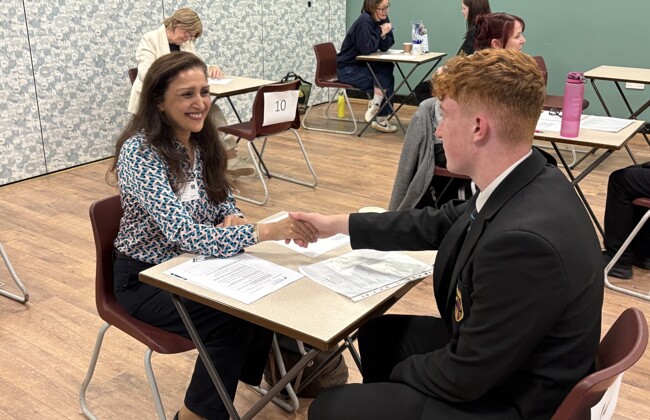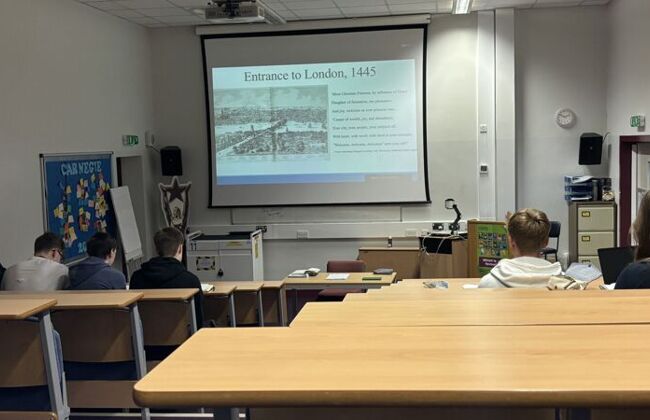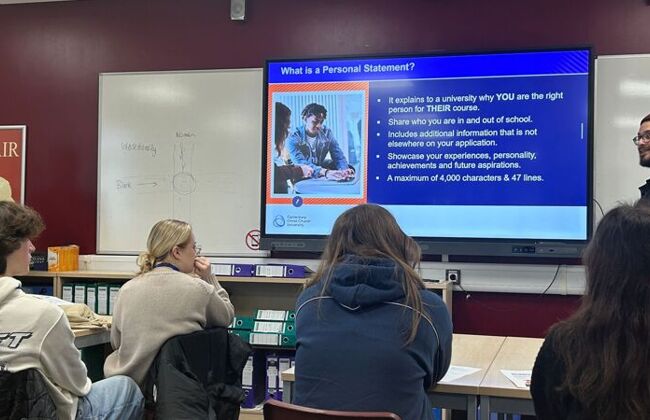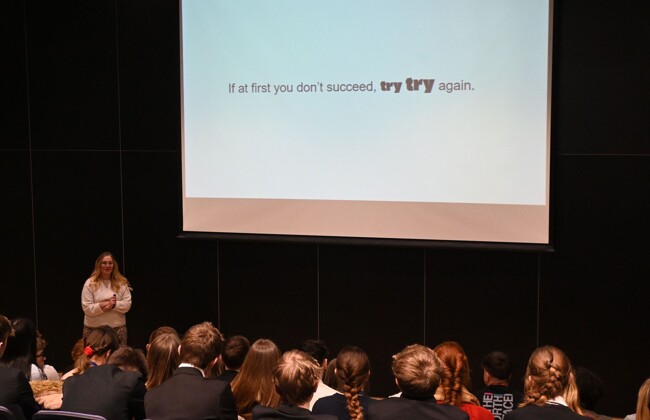End of Year 12 Subject Awards Announcement
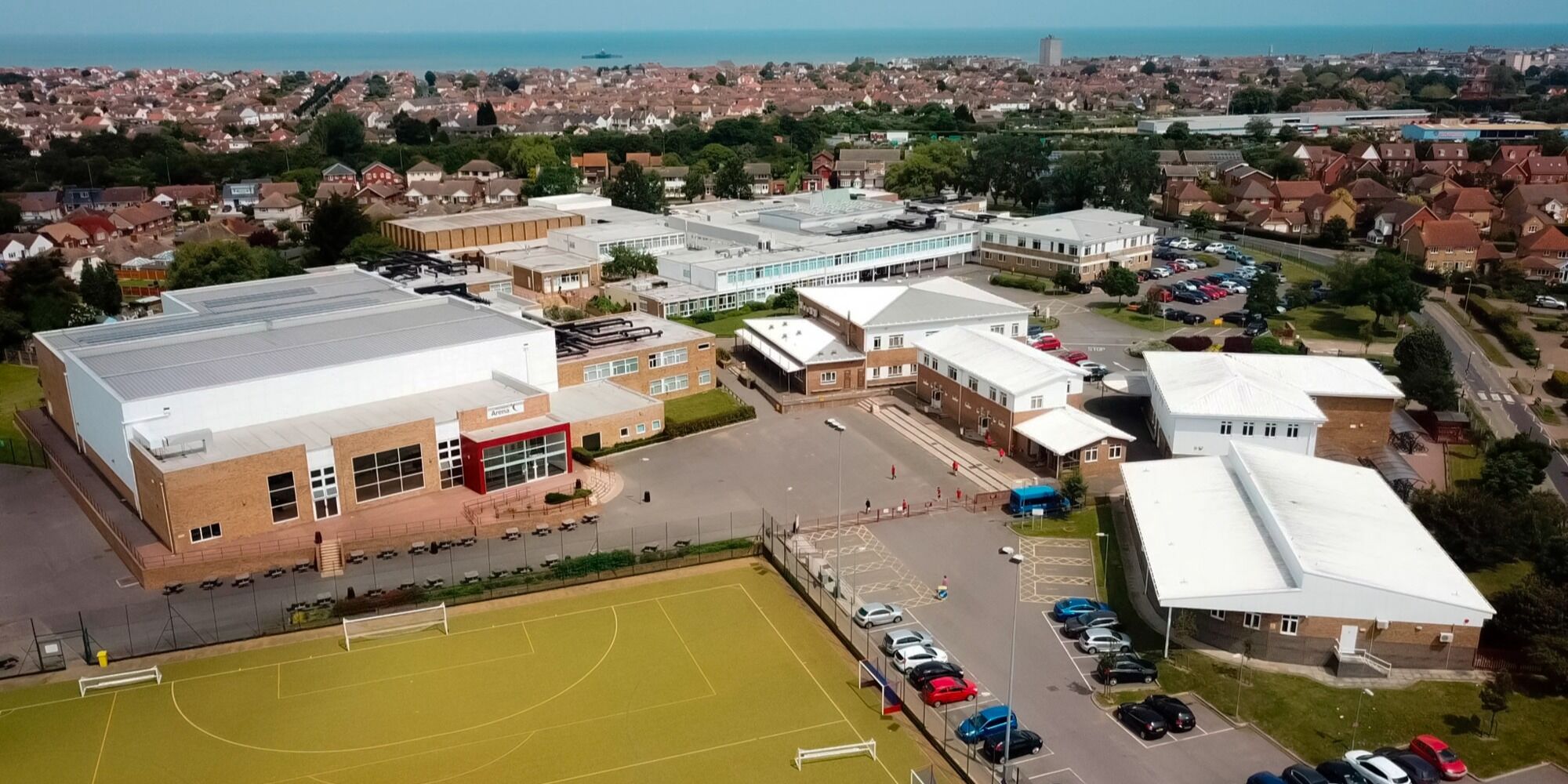




Kindness Respect Dedication
A World Of Opportunities
Herne Bay High School is a hugely popular and oversubscribed school that prides itself on its culture of high expectations and values. We are passionate about ensuring every child, regardless of their cultural, social and academic background, is given every opportunity to reach their full academic potential whilst supporting them to develop as a mature, confident and rounded individual ready to flourish in a rapidly developing world.

Connecting Our Community

Herne Bay High School / 11 Jul 2025
Our Crochet club visited The East Kent Mencap hub this morning to spend time making cards and key rings for the charity. They also took the opportunity to buy crafting items to use over the summer holiday.
Miss Reece and the Crochet Club would like to thank everyone who has supported us this year through yarn donations, supporting our sales and helping us find other resources.
We look forward to lots more crochet in 2025/26!

Herne Bay High School / 11 Jul 2025
Our Year 12 Biology students returned to the University of Kent on Wednesday for their final day of the GENE project.
This time, they carried out an ELISA assay to show how the antibodies they had modified could be used in a diagnostic test such as the lateral flow COVID-19 tests.
The students have developed a range of skills throughout the project and gained amazing lab experience. We are very grateful to the University of Kent for their support and look forward to taking part again next year.

Herne Bay High School / 11 Jul 2025
Kent Police have asked us to notify families of a current concern about children using catapults and an increase in the number of reports they have received relating to animals and wildlife being targeted, injured or damaged by objects fired from catapults.
Whilst it is not a criminal offence to carry a catapult, its use may lead to criminal liability depending on the circumstances, for example intentionally killing or injuring any wild bird; causing an animal to suffer; causing unnecessary suffering to any wild mammal; intentionally or recklessly damaging property; and unlawfully having any offensive weapon in a public place.
Kent Police would like to ask parents and carers to dissuade their children from leaving home with a catapult and to explain to their children that using a catapult to cause damage or harm is a criminal offence. If you wish to dispose of a catapult, please contact your local beat officer who will be able to assist.
Kent Police would also like to remind families on the law regarding the use of eScooters, and have asked us to share the attached poster.

Herne Bay High School / 11 Jul 2025
The Kent local area is working towards a new framework, including the introduction of school-based communities, to help more children receive the support they need within their local mainstream schools. To keep parents informed, Kent PACT - Parents and Carers Together are hosting a webinar with Kent County Council to explain what these changes mean for your children.
Session dates/times (sign up at the link provided):
Monday 14th July 15:00-16:00
https://monkeylink.co/9e0ac7
Wednesday 16th July 18:30-19:30
https://monkeylink.co/574a56
Friday 18th July 11:00-12:00
https://monkeylink.co/f763c8

Herne Bay High School / 10 Jul 2025
Here's our next list of staff facing a soaking:
Introducing Mr Gambrill-Jarman, Miss Mackinnon, Mr Prountzos, Miss Wellings, Miss Kehoe, Mrs Leone, Mr Jones, Miss Laming, Mr Davison, and Miss Junsamut!
The fantastic opportunity to soak one of these people could be yours if you enter the draw. Entries are just £1 each, available via the School Gateway app or by cash from Mrs Johnson in Main Reception on Monday and Tuesday, and you can enter as many times as you wish!
Don't want to soak a staff member, Great Ormond Street Hospital and Charity? You can do this securely, online at https://monkeylink.co/8da907

Herne Bay High School / 10 Jul 2025
Last Friday, our Year 7 Horizon project group attended the AgriTech experience at Canterbury Christ Church University.
During the day students toured the engineering department and saw 3D printed go-carts, racing helmets and dragons. They learnt how biological pest control is used and how hoverflies larvae are very effective at aphid removal. They learnt how to be plant GP’s and how easy it is to spread disease within agriculture. They were also very surprised how long apples can last after being picked and what conditions allow this to happen.

Herne Bay High School / 9 Jul 2025
We have our first 5 soakees for the Soak the Staff event next week!
We're pleased to announce that Miss Radwell, Mr Green, Mrs Cobb, Mr Lyden and Mrs Johnson have all been brave enough to sit under one of our buckets.
If you would like the chance to pour a bucket of water over one of our staff, please buy your entries via SchoolGateway before next Tuesday.
We'll be announcing more staff who will be soaked later this week, so keep your eyes pealed.

Herne Bay High School / 8 Jul 2025
Our Art department are pleased to announce that Year 12 Fine Art student Isla has been crowed as the overall winner of University for the Creative Arts - UCA's Dreams Competition this year from over 600 entries across the UK!
The exhibition of work continues at UCA's Canterbury Campus until Thursday 10th July.

Herne Bay High School / 8 Jul 2025
Almost 40 students from Years 8-10 took part in a Mask Workshop last week.
Students learnt about the history of masks from Commedia Del Arte to modern theatre companies. They also practically used various types of masks including Vamos and Trestle as well as devising their own work. Look out for more workshops and performances using masks next year!
The photo is of our Drama company Wilde, who are modelling some of the masks used in the workshop

Herne Bay High School / 8 Jul 2025
Thank You for Joining Our Sixth Form Induction!
A huge thank you to all the students who attended our Sixth Form Induction last week. 🌟
It was fantastic to welcome you to Herne Bay High and see your enthusiasm, curiosity, and energy as you took your first steps into Sixth Form life. We hope you enjoyed the sessions, met new friends, and are feeling excited about the journey ahead.
We can’t wait to see you again in September!

Herne Bay High School / 7 Jul 2025
Our friends at Herne Bay Bowling Club have a wonderful opportunity for our Year 8 students. Starting this Saturday morning, they are offering junior sessions complete with two years' free membership!
All you need is a pair of flat soled shoes and some enthusiasm. To find out more, please visit their website at https://monkeylink.co/d0148c

Herne Bay High School / 7 Jul 2025
Last week, students had their house assemblies presented by Active Life Ltd about keeping happy and healthy during the summer holidays.
Active Life have a wonderful offer available to all children aged between 5-15 to access Herons Leisure Centre for just £30 for 6 weeks - please see attached flyer and contact them directly if you are interested!

Herne Bay High School / 4 Jul 2025
As part of our fundraiser for Great Ormond Street Hospital and Charity, we're giving students the chance to soak the staff!
A draw will take place to determine who will be lucky enough to pour a bucket of water over one of our staff members, with entries available right now via the School Gateway app for only £1. Students can enter as many times as they wish, each entry will give them another chance in the draw.
Keep your eyes pealed on our social media and on posters around the school for more information and the list of staff who will be getting soaked for charity!

Herne Bay High School / 2 Jul 2025
A huge thank you to all the year 10 families and carers who joined us for our Work Experience Support Evening! Your engagement and encouragement play a vital role in helping our students prepare for this exciting step into the world of work.
As promised, here is the Future Pathways and qualifications film for you to view at home: https://youtu.be/TU13SV90NvE?si=fZR_i4sOXGAZw17k
We would love to hear your feedback on our careers events, please complete our form: https://monkeylink.co/50a576

Herne Bay High School / 30 Jun 2025
As part of our continued support for our Young Carers in school, we were lucky enough to spend last Tuesday morning at Riverside Youth Centre.
Students were joined by Tina Culver from the Young Carers charity Imago Community. Students travelled by train, were able to engage in the fun activities, make pizzas and fruit cocktails as well as see the valuable charity work that Riverside do with the food bank and the 'grow baby' projects.
Many thanks to Abbie from Riverside for hosting us!
KCC’s first SENDcast episode will go live next Thursday 11th at 7pm. Episode 1 is designed for families at the beginning of their SEND journey who would like to know more about the support available in Kent.
Visit https://t.co/1YXTHQp6t6 for more information pic.twitter.com/cHykNqtLp9— Herne Bay High (@HerneBayHigh) June 6, 2025
HerneBayHigh / Jun 6
On Sunday 15th, our Year 12 Sport students will be headlining the volunteering at Whitstable @juniorparkrunUK as part of their 'Organising an Event' Unit. If you have a child aged 4-14 and would like to support our students in their studies, please do consider taking them along. pic.twitter.com/lOaMu7boDq— Herne Bay High (@HerneBayHigh) June 5, 2025
HerneBayHigh / Jun 5
We’re aware some parents received multiple notifications in SchoolGateway. This is due to the high volume of behaviour and achievement data processed as we approach the end of the academic year. We raised this issue with @ParentPay_Group in April and are awaiting a resolution.— Herne Bay High (@HerneBayHigh) June 3, 2025
HerneBayHigh / Jun 3
We wanted to bring to your attention an important topic highlighted in the recent Netflix program Adolescence: the
hidden language of emojis.
This letter has some excellent tips for you to discuss digital interactions with your child: https://t.co/IeUrJw1zJM— Herne Bay High (@HerneBayHigh) April 1, 2025
HerneBayHigh / Apr 1
Face Family Advice have asked us to share the below poster for parents who may wish to access further training around their child’s SEND or behavioural needs.
For more information, or to book, please visit https://t.co/hkH4QHV2Ya pic.twitter.com/f573ZIBSz9— Herne Bay High (@HerneBayHigh) March 27, 2025
HerneBayHigh / Mar 27
Visit Our Outstanding Sixth Form
Read More

